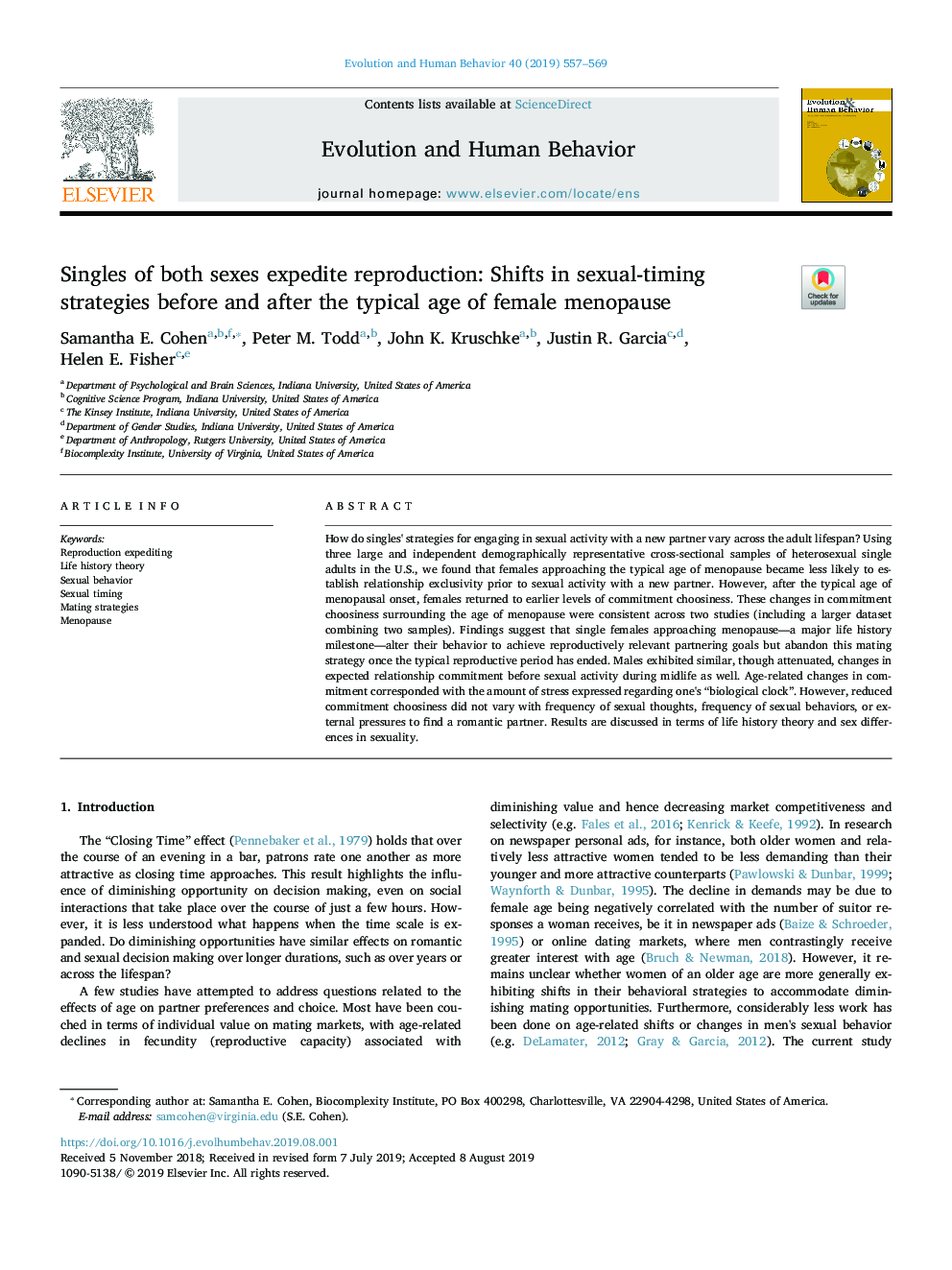| Article ID | Journal | Published Year | Pages | File Type |
|---|---|---|---|---|
| 13458615 | Evolution and Human Behavior | 2019 | 13 Pages |
Abstract
How do singles' strategies for engaging in sexual activity with a new partner vary across the adult lifespan? Using three large and independent demographically representative cross-sectional samples of heterosexual single adults in the U.S., we found that females approaching the typical age of menopause became less likely to establish relationship exclusivity prior to sexual activity with a new partner. However, after the typical age of menopausal onset, females returned to earlier levels of commitment choosiness. These changes in commitment choosiness surrounding the age of menopause were consistent across two studies (including a larger dataset combining two samples). Findings suggest that single females approaching menopause-a major life history milestone-alter their behavior to achieve reproductively relevant partnering goals but abandon this mating strategy once the typical reproductive period has ended. Males exhibited similar, though attenuated, changes in expected relationship commitment before sexual activity during midlife as well. Age-related changes in commitment corresponded with the amount of stress expressed regarding one's “biological clock”. However, reduced commitment choosiness did not vary with frequency of sexual thoughts, frequency of sexual behaviors, or external pressures to find a romantic partner. Results are discussed in terms of life history theory and sex differences in sexuality.
Related Topics
Life Sciences
Agricultural and Biological Sciences
Ecology, Evolution, Behavior and Systematics
Authors
Samantha E. Cohen, Peter M. Todd, John K. Kruschke, Justin R. Garcia, Helen E. Fisher,
